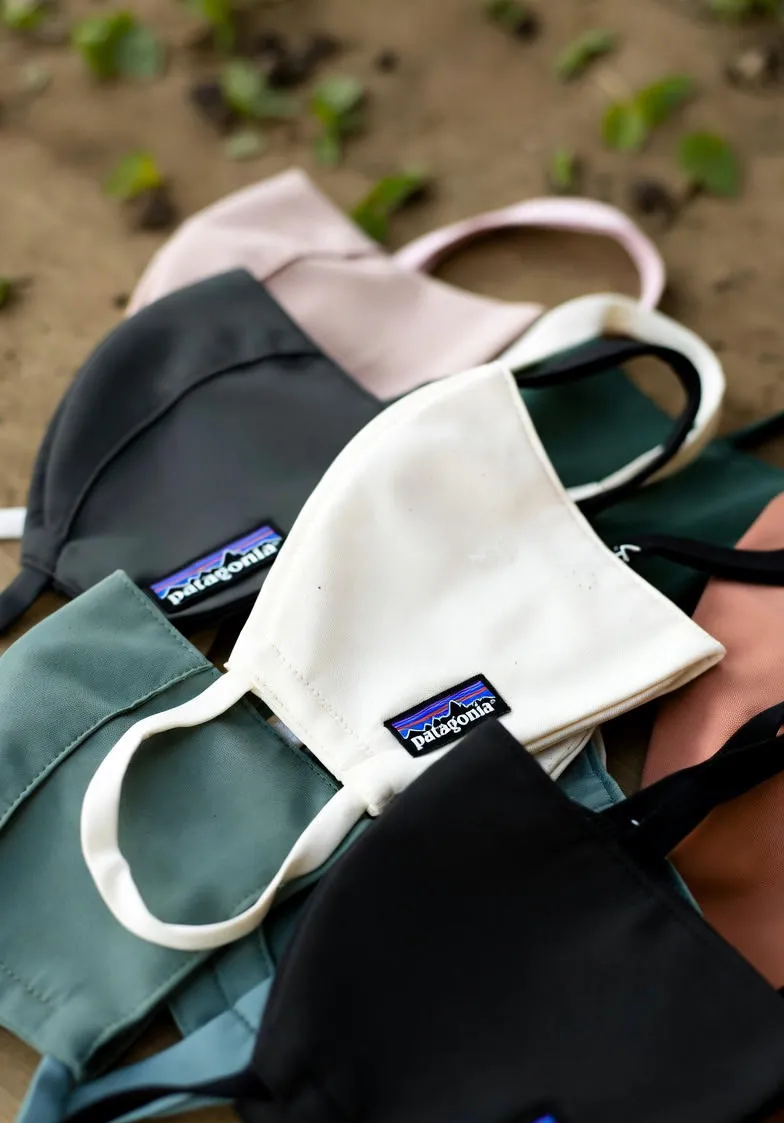Sustainable Style: Top Eco-Friendly Face Masks from Green Brands
Discover top eco-friendly face masks from sustainable brands like Pact and Patagonia. Learn about organic materials, ethical production, and why reusable masks are the green choice for health and the environment.

Introduction to Eco-Friendly Face Masks
In a world increasingly conscious of environmental impact, the shift toward sustainable living has permeated every aspect of our daily routines. One small but significant item that has gained prominence in recent years is the face mask. What began as a necessity during global health crises has evolved into a fashion statement, and now, with growing awareness, into an opportunity for eco-conscious choices. Eco-friendly face masks, crafted from sustainable materials by brands committed to the planet, offer both protection and purpose. These masks are not just about covering your face; they represent a commitment to reducing waste, supporting ethical labor, and preserving natural resources.
Traditional disposable masks, often made from non-biodegradable plastics like polypropylene, contribute to the mounting problem of medical waste. In contrast, sustainable alternatives prioritize biodegradable fabrics, organic cotton, and innovative materials derived from plants or recycled sources. This article delves into the world of eco-friendly face masks, highlighting top sustainable brands that are leading the charge. We'll explore the materials they use, the design innovations they bring to the table, and why choosing these masks can make a tangible difference for the environment.
The Rise of Sustainable Materials in Face Masks
The foundation of any eco-friendly face mask lies in its materials. Brands are turning away from synthetic fibers that linger in landfills for centuries and embracing options that break down naturally or can be repurposed. Organic cotton, for instance, is a staple in many sustainable masks. Grown without harmful pesticides, it supports healthier soil and biodiversity while being soft and breathable against the skin.
Another rising star is hemp, a versatile plant that requires minimal water and no pesticides to thrive. Hemp fabric is naturally antimicrobial and UV-resistant, making it ideal for masks that need to withstand daily wear. Tencel, derived from eucalyptus trees in a closed-loop process that recycles nearly all water and solvents, offers a silky texture with excellent moisture-wicking properties. For those seeking zero-waste options, some brands incorporate recycled plastic bottles or fishing nets, transforming ocean-bound pollutants into protective gear.
Beyond the fabric, sustainable brands focus on certifications like GOTS (Global Organic Textile Standard) to ensure their supply chains are free from exploitation. These materials not only reduce environmental harm but also enhance comfort, durability, and even style, allowing wearers to express their values through fashion.
Spotlight on Leading Sustainable Brands
1. Pact: Organic Comfort Meets Everyday Wear
Pact is a pioneer in organic essentials, and their face masks are no exception. Made from 100% GOTS-certified organic cotton, these masks are soft, adjustable, and available in a rainbow of colors. What sets Pact apart is their commitment to fair trade factories, ensuring workers receive living wages. Each mask is reusable, machine-washable, and designed to last through hundreds of cycles, drastically cutting down on single-use waste.
Design-wise, Pact offers single and double-layer options, with filter pockets for added protection. Their minimalist aesthetic pairs well with casual outfits, making sustainability accessible without sacrificing style. Plus, for every mask purchased, Pact plants a tree, amplifying the eco-impact.
2. Girlfriend Collective: Activewear-Inspired Protection
Known for their inclusive activewear, Girlfriend Collective brings the same ethos to their masks. Crafted from recycled water bottles, these masks are lightweight, stretchy, and feature a contoured fit for all-day comfort. The brand's transparency shines through in their material breakdown: each mask repurposes about five plastic bottles, keeping them out of landfills and oceans.
Girlfriend Collective's masks come in inclusive sizing and vibrant hues, encouraging wearers to mix and match with their sporty vibe. They're also fully reversible, doubling your style options while promoting longevity. The brand's B Corp certification underscores their holistic approach to sustainability, from ethical production to carbon-neutral shipping.
3. Matt & Nat: Vegan Leather Accents on Cotton Bases
For a touch of luxury, Matt & Nat offers masks that blend organic cotton with their signature plant-based leathers. These masks feature adjustable ear loops and nose wires for a secure fit, all while maintaining a chic, urban edge. The vegan materials ensure no animal products are involved, aligning with cruelty-free values.
Matt & Nat's innovation extends to their packaging: masks arrive in compostable bags, and the brand offsets its carbon footprint through tree-planting initiatives. Ideal for the fashion-forward eco-warrior, these masks elevate any ensemble from streetwear to office attire.
4. Boody: Bamboo's Natural Antimicrobial Power
Australian brand Boody harnesses the power of bamboo viscose, sourced sustainably and processed with eco-friendly methods. Their masks are hypoallergenic, breathable, and naturally antibacterial—perfect for sensitive skin or humid climates. Boody's closed-loop production recycles 99% of water, minimizing environmental strain.
With seamless construction and soft elastic, Boody masks prioritize comfort without compromising protection. They offer multi-packs in neutral tones, making it easy to stock up sustainably. Boody's dedication to biodiversity includes partnerships with conservation groups, ensuring their bamboo sourcing supports forest health.
5. Outerknown: Ocean-Minded Reusable Masks
Founded by surfer Kelly Slater, Outerknown infuses ocean conservation into every product. Their masks, made from recycled nylon and organic cotton blends, feature UPF 50+ protection for outdoor adventures. Each purchase supports the brand's 1% for the Planet pledge, directing funds to marine preservation.
Outerknown's designs are rugged yet refined, with drawstring adjustments for a custom fit. They're built to endure washes and wears, embodying the brand's 'buy better, wear longer' philosophy. For those who live by the water, these masks are a seamless extension of an active, eco-conscious lifestyle.
6. Patagonia: Trail-Ready Sustainable Layers
Patagonia's reputation for outdoor gear precedes them, and their face masks uphold that legacy. Made from recycled polyester and TPU film, these masks are water-repellent and highly breathable, with a nanofiber filter layer for superior filtration. Patagonia's rigorous testing ensures they meet or exceed CDC guidelines.
The brand's environmental activism is woven into the fabric—literally. Masks are produced in Fair Trade Certified factories, and Patagonia donates proceeds to frontline workers. With earthy colors and ergonomic shapes, they're perfect for hikes, commutes, or casual days out.
Benefits Beyond the Environment
Choosing eco-friendly face masks isn't just about the planet; it's a boon for your health and wallet too. Natural materials like organic cotton and bamboo reduce irritation and allergies common with synthetic disposables. Reusable designs mean fewer purchases over time, saving money while cutting waste— one study estimates that switching to reusables can prevent thousands of single-use masks from entering oceans annually.
From a social standpoint, supporting sustainable brands bolsters ethical labor practices. Many of these companies, like Pact and Girlfriend Collective, audit their suppliers to combat exploitation in the textile industry. Wearing such masks becomes an act of solidarity, signaling to larger corporations the demand for responsible production.
How to Care for Your Sustainable Mask
To maximize the lifespan of your eco-friendly mask, proper care is key. Most are machine-washable in cold water with mild detergent—avoid bleach to preserve fibers. Air-dry to save energy, and store in a clean, dry place. Replace when elastic loosens or fabric frays, typically after 50-100 washes.
For filter-equipped masks, swap inserts after 20-40 hours of use, opting for compostable or reusable options from the same brands. Regular rotation keeps things fresh, and a quick spot-clean with soap and water extends wear between full washes.
The Future of Eco-Friendly Face Protection
As technology advances, the future of sustainable face masks looks even brighter. Innovations like mycelium-based fabrics (grown from mushrooms) and algae-derived polymers promise ultra-biodegradable options. Brands are experimenting with smart textiles that change color when filtration efficiency drops, ensuring safety without guesswork.
Consumer demand is driving this evolution—sales of sustainable apparel surged 20% last year, with masks leading the pack. Governments and organizations are incentivizing green alternatives through certifications and rebates, paving the way for widespread adoption.
In embracing eco-friendly face masks, we're not just protecting our faces; we're safeguarding the air we breathe, the water we drink, and the earth we call home. By choosing brands like Pact, Girlfriend Collective, and Patagonia, we vote with our purchases for a greener tomorrow.
Conclusion
Eco-friendly face masks from sustainable brands blend necessity with nobility. From organic cotton havens to recycled ocean rescues, these options prove that style and sustainability can coexist. As we navigate a post-pandemic world, let's carry forward the habit of mindful consumption. Your next mask isn't just an accessory—it's a statement. Explore these brands, make the switch, and join the movement toward a more harmonious planet.


